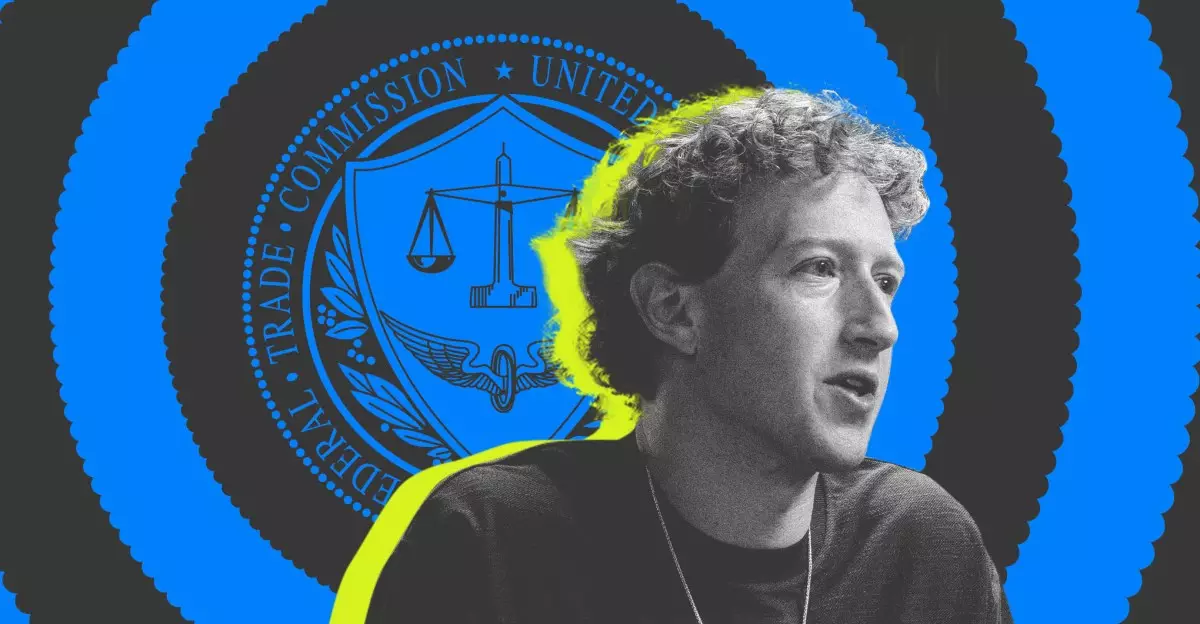The landscape of social media has been irrevocably shaped by the decisions made within the hallowed halls of Meta, the parent company of Facebook, Instagram, and WhatsApp. Currently, Meta finds itself embroiled in a high-stakes antitrust case initiated by the Federal Trade Commission (FTC). In a courtroom in Washington, D.C., CEO Mark Zuckerberg has been testifying for nearly nine hours, painting a picture of what could have been had he chosen different paths for the company. This ongoing trial is not just a legal showdown; it serves as a critical examination of the choices that have positioned Meta at the forefront of our digital lives, while also hinting at the monopolistic shadows it casts.
Alternative Realities: A Path Not Taken
As Zuckerberg reiterates his thoughts from the witness stand, we are invited into an imaginative exploration of alternate realities—scenarios that could have significantly altered the trajectory of social media. One striking reflection comes from the failed bid to acquire Snapchat for $6 billion back in 2013. Had Evan Spiegel accepted this offer, would Meta have dominated the ephemeral messaging space as seamlessly as it did with Instagram? The idea evokes a myriad of questions about the leadership decisions and market dynamics at play during the formation of Meta.
The courtroom testimonies have also hinted at wild notions Zuckerberg considered, like wiping users’ friend lists to breathe new life into Facebook. This fear-driven impulsivity showcases an awareness of how quickly user engagement can shift, signifying both vulnerability and the desperation of a dominant player attempting to retain its lead. Such drastic ideas, if fully realized, could have unraveled the very fabric of what makes social platforms thrive—user connectivity and community.
The FTC’s Challenging Narrative
During this pivotal trial, the FTC is operating on a narrative that frames Meta as an entity synonymous with monopolistic practices. Their claim hinges on the notion that Zuckerberg’s strategy of acquiring Instagram and WhatsApp, rather than fostering competition, has suffocated the marketplace, thereby harming consumers. This approach raises essential questions about the definitions of market competition in a digital age where innovation often leads to consolidation. As Zuckerberg types away at the FTC’s robust definitions, he asserts a more fluid vision of competition, which includes newer challengers like TikTok and established players such as YouTube—assertions that complicate the FTC’s monolithic portrayal.
The defense presented by Zuckerberg—that Meta exists within a rapidly changing environment replete with diverse competitors—challenges the static market definitions being put forth by the FTC. By underscoring the dynamic interplay among social media services, he is attempting to shatter the monopoly narrative while defending a business model that thrives on adaptation and acquisition.
The Balance between Growth and Regulation
This ongoing battle raises questions about the balance between innovation and regulation. Meta’s evolution—from a college networking site to a conglomerate encompassing multiple social media platforms—speaks to the rapid development of the digital economy. As Zuckerberg navigates the legacy of his company, he appears to be defining Meta’s ethos: a blend of relentless growth tempered by scrutiny and regulation. The pivotal decisions to purchase rising stars in tech history reveal a duality—a desire for expansion matched with the fear of obsolescence.
The court documents encapsulate internal dialogues wherein Zuckerberg expressed genuine concern about the company’s diminishing competitive edge in the face of new entrants. The acquisitions he made, which are now under federal examination, were often presented as both tactical moves to safeguard Meta’s market position and as proactive gestures aimed at enriching user experience. This duality complicates the conversation surrounding antitrust actions that target these acquisitions.
The Future of Social Media on Trial
The fate of Meta hangs in the balance as this trial unfolds, reflecting a broader societal reckoning with the influence of social media giants. What does it mean for innovation when acquisition is viewed through the lens of antitrust? As Zuckerberg continues to weave between the narrative of a visionary entrepreneur and a monopolistic titan, the results of this trial will deliver ripples through tech policy discussions for years to come.
This case is not solely about Meta—it is emblematic of a moment in time where technology and governance intersect precariously. The outcomes will likely shape how social media platforms are scrutinized, regulated, and perhaps even redefined. As we advance deeper into an era dominated by digital interaction, the intricacies of this trial stand as a crucial touchpoint, revealing the complexities of innovation in a world increasingly aware of the power wielded by only a handful of tech companies.

